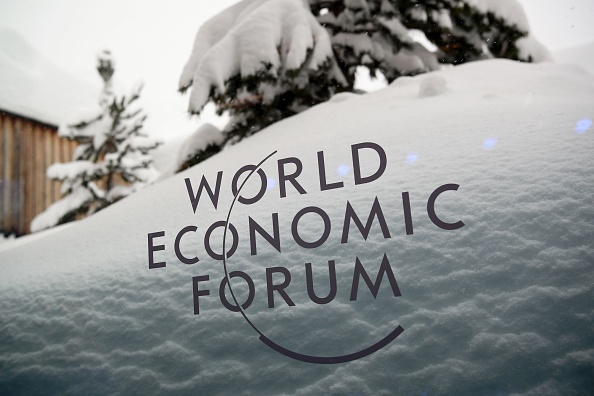Shhh … Don’t tell anyone, but a bank led by the man with the most appropriate name for the snowy confines of Davos just might have won Davos 2020. Standard Chartered, helmed by CEO Bill Winters, has reason to celebrate a victory at this year’s World Economic Forum Annual Meeting that few of the passionate voices in the climate change debate seem to have noticed.
Considering the gathering was headlined by US President Donald Trump and teenage environmental activist Greta Thunberg, Davos-watchers expected climate change to be a hot topic this week. However, few expected the financial services industry would find itself center stage in conversations about hydrocarbons and reducing CO2 emissions.
At the outset of the week, many of the financial services executives who regularly attend Davos were caught flat-footed by the release of a report from Greenpeace entitled “It’s the Finance Sector, Stupid.” Looking to highlight hypocrisy on the part of those executives, the report took some of those executives’ very own public comments on sustainability and environmental issues and compared them to the actions of their institutions. While executives from 24 of the world’s largest financial services firms were talking up their green bona fides, their companies financed $1.4 trillion in fossil fuel projects from the time the Paris Agreement wsa signed in 2015 until the end of 2018.
The Greenpeace report shows JPMorgan Chase ($195.663 billion), Citigroup ($129.493 billion) and Bank of America ($106.687 billion) top the list of fossil fuel financiers. Throughout the week in Davos, JPMorgan Chase Chairman and CEO Jamie Dimon, Bank of America Chairman and CEO Brian Moynihan and Citi CEO Michael Corbat danced around questions about the report, touting how much their banks invest in renewables and/or claiming it was not the role of banks to police the environmental behavior of their clients.
And then Standard Chartered’s Winters conducted this interview with CNBC:
Standard Chartered checks in at #21 on the Greenpeace list, with a reported $15.244 billion in fossil fuel deals. But when Standard Chartered’s Winters fielded questions about the role banks should play in curbing fossil fuels, his answers were decidedly different than those of his C-suite peers from the banking industry. Winters explained that Standard Chartered has, in fact, already sold its interest or otherwise walked away from some of the fossil fuel projects detailed in the Greenpeace report. A quick look at a website called BankTrack, which is the same source Greenpeace used for much of the data in its report, shows Winters was telling the truth. Winters went on to say that not only has Standard Chartered backed away from new fossil fuel projects, the bank is consulting with legacy clients about how they can optimize their operations with an eye toward being more environmentally responsible.
So while other banks have continued to talk the talk about being green, Standard Chartered has been walking the walk. As Winters exemplified this week in Davos, a bank can lead the way on environmental issues if it has the right leadership.
As for Greenpeace, they’d do well to update the way they are presenting and publicizing their report. Rather than lump Standard Chartered in with the other 23 financial institutions in the report, perhaps Greenpeace should show up at next year’s World Economic Forum Annual Meeting and champion the work of Winters and his team. Maybe a bit of envy among other financial services CEOs might even inspire those executives and their firms to catch up to Standard Chartered.
Soooo … the story of Standard Chartered’s victory in Davos could end here. But, maybe it shouldn’t.
In another timely piece of reporting, Bloomberg outlined this week how Dimon, Moynihan, Corbat and James Gorman of Morgan Stanley — which ranks #10 on the Greenpeace list with $66.931 billion in financing for fossil fuels — have all enjoyed unusually long tenures at the helm of their firms. Corbat, who was tapped to lead Citi in 2012, is the least-tenured of the group. Dimon, who became CEO in 2005, has enjoyed the longest tenure of the foursome. In addition to all that long-term C-suite stability, last week Citi reported its best earnings since before the financial crisis while JPMorgan Chase reported its best earnings ever.
All those statistics are great for the banks, but they also mean the clock might be ticking for any big changes related to the financing of fossil fuels. If JPMorgan Chase, BofA, Citi and Morgan Stanley are ever going to walk the walk when it comes to curbing CO2 emissions, now is the time. If those four esteemed CEOs wanted to get serious about curbing CO2 emissions, they could follow the lead of Winters and leverage their clout to alter the landscape of energy finance forever. For the greatest impact, they could even do so in collaboration with one another. But if the foursome instead opts to kick the climate can down the road, their successors might not have the courage or influence needed to initiate real change — and their firms won’t notch any wins at Davos anytime soon.
CLARIFICATION: The last sentence of the third parapgraph of this story has been updated to make clear to readers that the $1.4 trillion figure is based on a data window that concluded in 2018.
